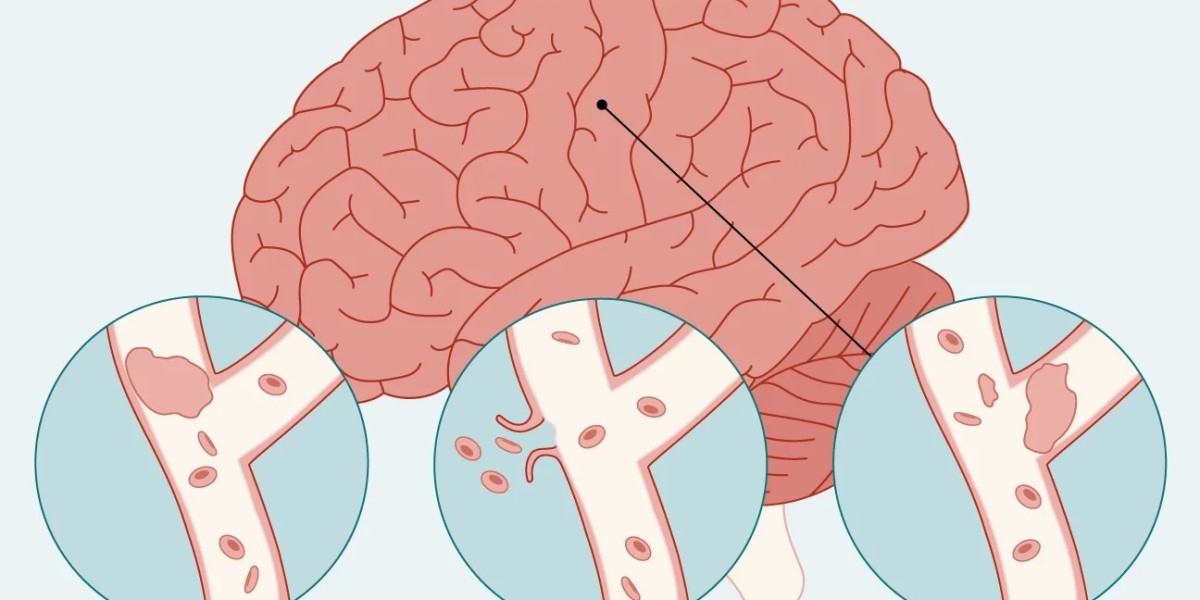Neurological emergencies can be alarming, and recognizing the early signs is crucial for timely intervention and effective treatment. From dizziness and headaches to more severe conditions like strokes, understanding how to manage these situations is essential for your health and safety. In this article, we explore common neurological emergencies, their symptoms, and how to handle them effectively.
Understanding Neurological Emergencies
A neurological emergency refers to any sudden and severe condition affecting the brain, spine, or nervous system. These events often require immediate medical attention to prevent lasting damage or even life-threatening consequences. Some neurological emergencies are more common, such as dizziness, seizures, or migraines, while others, like strokes or spinal cord injuries, are more serious.
Common Neurological Emergencies and Their Symptoms
1. Dizziness and Vertigo
Dizziness is a sensation of lightheadedness or feeling faint, while vertigo refers to the spinning sensation where the room seems to move around you. Both conditions can stem from various causes, including inner ear problems, low blood pressure, or neurological conditions.
Symptoms to Watch For:
- Feeling faint or unbalanced
- Spinning sensation (vertigo)
- Nausea or vomiting
- Loss of coordination or difficulty walking
How to Manage:
- Rest: Sit or lie down to prevent falls.
- Hydrate: Drink water to stay hydrated, especially if dizziness is caused by dehydration or low blood pressure.
- Seek Medical Help: If dizziness persists or is accompanied by other serious symptoms like confusion or vision loss, consult a healthcare professional immediately.
2. Severe Headaches
While occasional headaches are common, severe, sudden-onset headaches can indicate a more serious problem, such as a migraine or brain aneurysm. Cluster headaches and tension headaches can also be debilitating, but they typically have different symptoms.
Symptoms to Watch For:
- Sudden onset of severe, intense pain
- Nausea or vomiting
- Sensitivity to light and sound
- Vision changes or blurred vision
How to Manage:
- Medication: Over-the-counter pain relief or prescription medications for migraines or severe headaches.
- Rest in a Dark Room: For migraine sufferers, resting in a dark, quiet room can help alleviate symptoms.
- Emergency Care: If the headache comes on suddenly and is accompanied by confusion, weakness, or speech difficulties, seek emergency medical attention immediately.
3. Seizures
A seizure is an abnormal surge of electrical activity in the brain that can cause uncontrollable shaking, muscle spasms, or loss of consciousness. Seizures can be caused by epilepsy, head injuries, or other neurological conditions.
Symptoms to Watch For:
- Jerking movements or muscle spasms
- Loss of consciousness
- Confusion or memory loss after the seizure
How to Manage:
- Protect the Person: Ensure they are in a safe area and remove any potential hazards.
- Do Not Restrain: Let the seizure run its course without trying to hold the person down.
- Seek Immediate Help: If the seizure lasts longer than 5 minutes or if another seizure occurs right after, call emergency services.
4. Stroke
A stroke occurs when there is a blockage or rupture in a blood vessel in the brain, leading to a lack of oxygen in the affected area. This is a medical emergency that requires immediate treatment to minimize damage to the brain.
Symptoms to Watch For:
- Sudden weakness or numbness in the face, arm, or leg (especially on one side)
- Difficulty speaking or understanding speech
- Sudden confusion, dizziness, or trouble seeing
- Sudden severe headache with no known cause
How to Manage:
- Act Fast: The acronym FAST is helpful for recognizing a stroke:
- Face: Ask the person to smile. Is one side of the face drooping?
- Arms: Ask the person to raise both arms. Does one arm drift downward?
- Speech: Ask the person to repeat a simple sentence. Is their speech slurred?
- Time: If you notice any of these symptoms, call emergency services immediately.
- Do Not Delay: Stroke treatment is most effective when administered within the first few hours of symptoms.
5. Spinal Cord Injuries
Spinal cord injuries can result from trauma, such as a fall, car accident, or sports injury. These injuries can cause paralysis or loss of sensation in parts of the body, depending on the location of the injury.
Symptoms to Watch For:
- Loss of movement or sensation below the injury site
- Difficulty breathing or shortness of breath (in case of a high spinal injury)
- Severe back or neck pain
How to Manage:
- Do Not Move: If a spinal injury is suspected, do not move the person unless they are in immediate danger (e.g., from fire).
- Call Emergency Services: Immediate medical attention is necessary to prevent further damage and stabilize the person.
How to Prevent Neurological Emergencies
While not all neurological emergencies are preventable, adopting certain habits can reduce the risk:
- Wear Protective Gear: For activities like sports or biking, wear helmets and other protective equipment.
- Healthy Lifestyle: Eating a balanced diet, exercising regularly, and avoiding smoking can help prevent conditions like stroke.
- Manage Stress: Stress management techniques, such as meditation or yoga, can help lower the risk of stress-induced neurological issues like migraines or tension headaches.
- Regular Check-Ups: Regular visits to a healthcare provider can help detect early signs of neurological disorders and provide preventive care.
When to Seek Expert Help
If you experience symptoms of a neurological emergency or if you're unsure whether your symptoms require immediate attention, don't hesitate to seek medical help. Dr. Gautam Arora and his team at the Neurology and Pain Management Clinic (NPMC) are dedicated to providing expert care for all neurological concerns. Whether it's managing dizziness, headaches, or stroke risk, prompt and effective treatment is key to preserving your health.
Conclusion
Neurological emergencies can be terrifying, but recognizing the symptoms early and knowing how to respond can make all the difference. From dizziness to strokes, each neurological condition requires a tailored approach to treatment. By staying informed and seeking prompt care, you can protect yourself and others from serious complications. If you're facing any neurological concerns, Dr. Gautam Arora at NPMC is here to help guide you through the process of diagnosis, treatment, and recovery.










